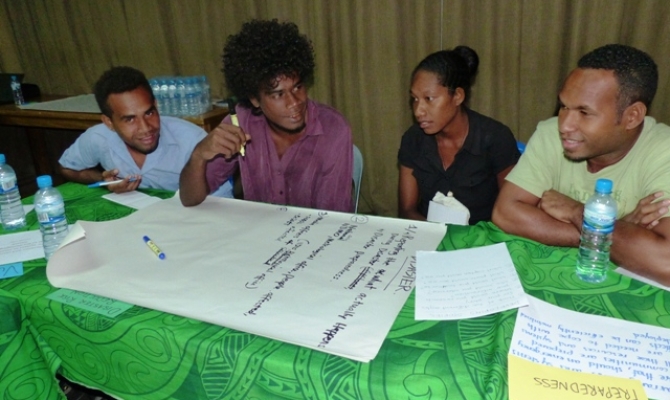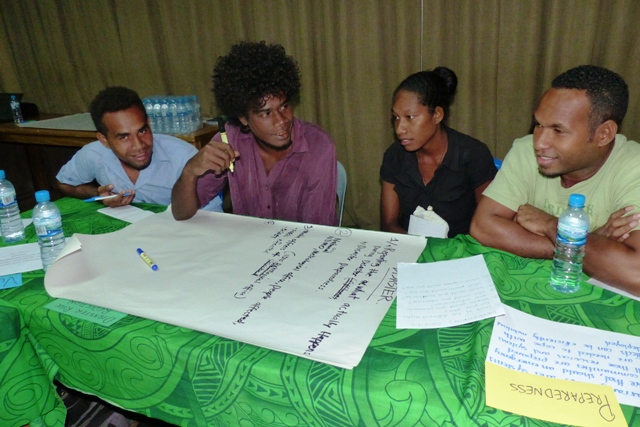
More than 15 journalism students from Solomon Islands National University spent their Saturday morning learning about climate change and disaster risk management reporting during a special training event last month.
Helping to raise awareness of climate change and disaster risk management through strengthening the ability of reporters to cover these issues, is at the core of a range of trainings funded by the Pacific Media Assistance Scheme (PACMAS).
The training was conducted by the Secretariat of the Pacific Regional Environment Programme (SPREP) in partnership with the Secretariat of the Pacific Communities (SPC), and the Solomon Islands Ministry of Environment, Climate Change, Disaster Management and Meteorology.
“It was a privilege for me to attend this workshop,” said Mr. Barnabas Manebona of the Solomon Islands National University (SINU) Journalism and Media School.
“I learnt that climate change is a totally different issue to that of the ozone layer as well as the difference between natural and technical disasters.”
The training session covered not only taught the students about climate change and disaster risk management, it also helped them think about how to construct stories on a regular basis, and not just during times of disasters.
“I learnt that the media can play a very important role in helping people understand more about addressing climate change as well as being prepared for disasters,” said Mr. Lionel Taorao a SINU Journalism and Media Student
The training is a component of the Broadcasters Climate and Disaster Resilience Plan project which is being delivered to eight Pacific island countries including the Cook Islands, Kiribati, Palau, Samoa, Solomon Islands, Tonga, Tuvalu and Vanuatu. It is funded by PACMAS.
The additional opportunity to teach the journalism students was arranged by local facilitator and freelance journalist, Mr. Evan Wasuka.
